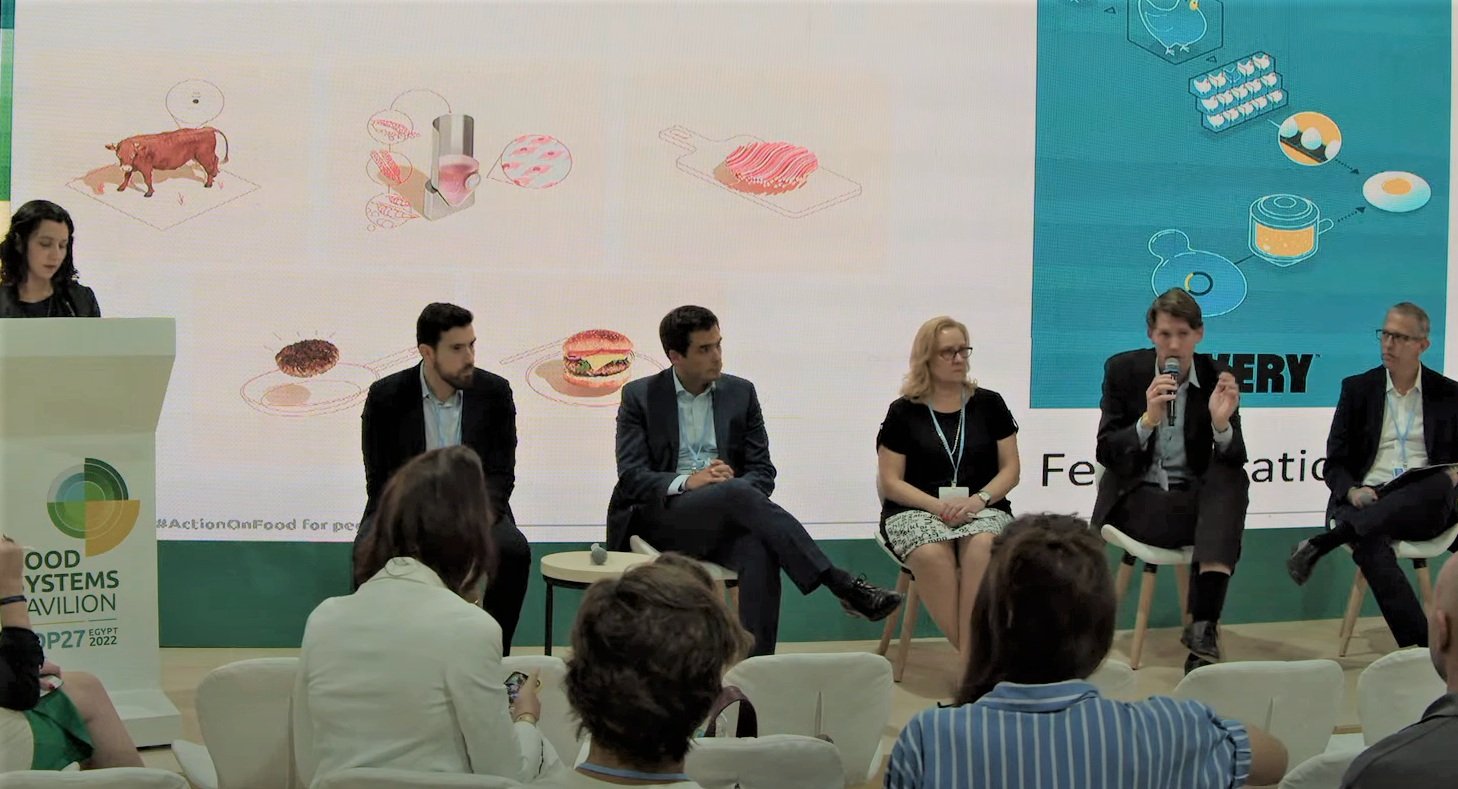Inclusion of Cultivated Beef at COP27 Marks Historic Breakthrough
This year, COP 27, the world’s largest climate-focused gathering, also known as the UN Climate Change Conference, centrally features agri-food and specifically alternative proteins for the first time. Cultivated meat is a key part of the conversation due to its potential to reduce the negative climate impact of food production, while increasing global food security and climate resilience.
Mosa Meat is contributing to the conversation at COP27 via the Food Systems Pavilion, co-hosted by the Good Food Institute, the Environmental Defense Fund, EIT Food and six other international organisations with support from the World Economic Forum, the European Union, and the Dutch Ministry of Agriculture.
“The inclusion of cultivated beef at COP27 this year marks a historic breakthrough,” shared Mosa Meat CEO Maarten Bosch. “Our goal is to help solve some of the most pressing issues associated with current industrial beef production and help combat the climate crisis by offering new ways to satisfy the world’s demand for beef.”
Today, Maarten spoke on a panel with other alternative protein leaders, policymakers and investors on the need to drive food innovation to meet global climate, food security, public health and biodiversity goals.
“It’s a great step forward to see increased attention on agrifood reform and specifically, cultivated beef at COP27,” Maarten elaborated. “With Mosa Meat’s rapid recent growth, creating the biggest scientific team in the industry and the largest cultivated meat campus in the world, I am very excited for what lies ahead as we help reshape the global food system.”
COP27 will take place Sunday, November 6 through Friday, November 18 in Sharm El-Sheikh, Egypt, with global leaders meeting to build on previous successes and pave the way to effectively tackle the global challenge of climate change.
Crave change? Sign up to our newsletter for the latest Mosa Meat updates straight to your inbox.

